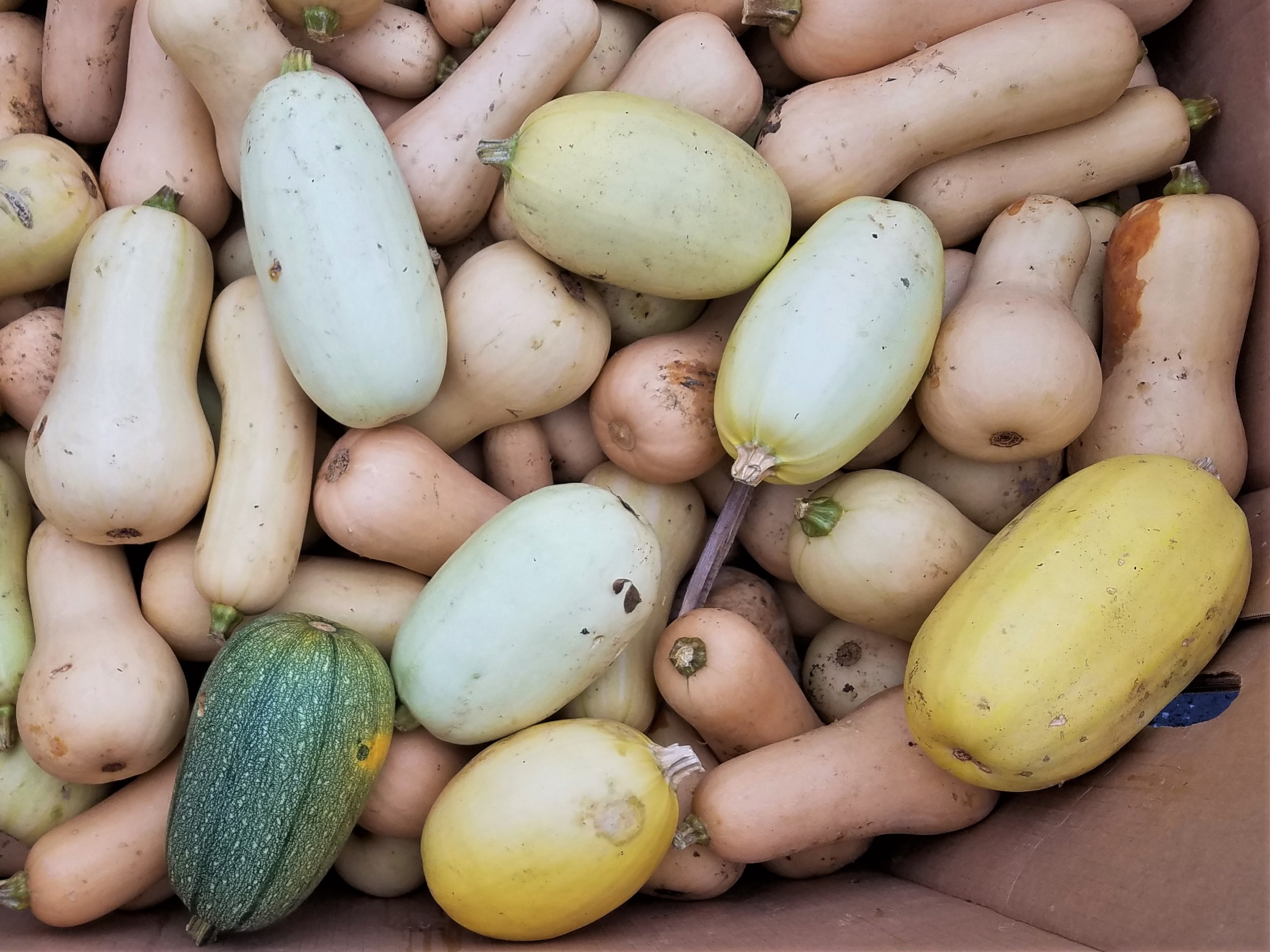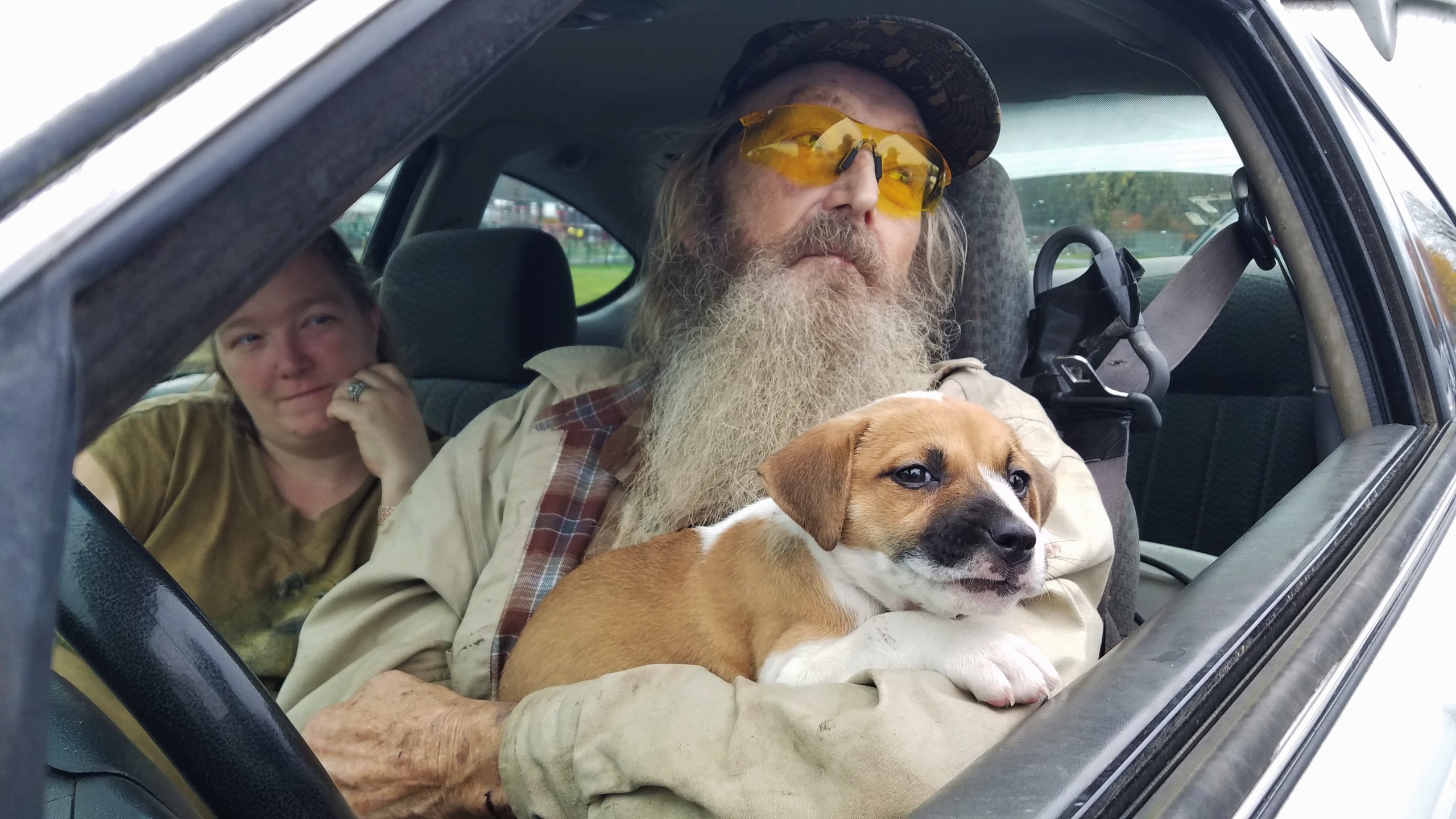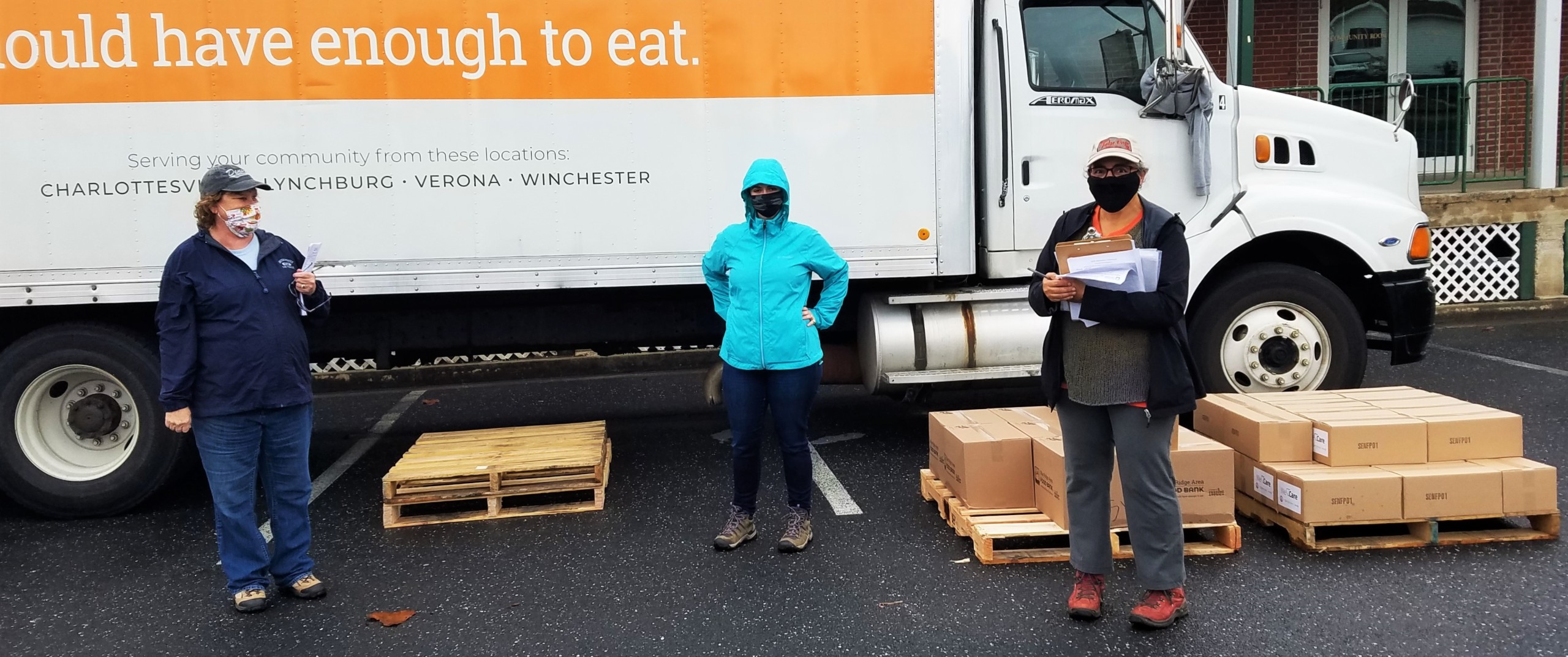Are you a new supporter and interested in learning more about how the Blue Ridge Area Food Bank works and impacts your community? One of our newest colleagues, Leigh Kirchner, is sharing insight into her food banking journey. This is the second post in a series of blogs written by Leigh, in which she shares stories and reflects on what it takes to make sure everyone has enough to eat. If you missed her first blog post, you can catch up at www.brafb.org/meet-leigh.
I could hear the rain falling heavily outside when I woke one morning last month. I needed to leave early to meet my co-workers, Robin and Melissa, at the Food Bank’s headquarters in Verona so we could carpool to a Mobile Food Pantry (MFP) distribution site in Timberville. But I wasn’t really looking forward to it.
At an earlier time in my life, I might have allowed myself to think about ways to get out of going. Who wants to drive an hour and a half in the rain just to stand outside for hours? But that would have been in the period before I lost my little brother—before my life changed forever—and I am now living in the period after. So, I pulled myself out of the quicksand that is lying in bed with my snuggly hound, and I began my day.

Fresh produce is a key offering at MFP distributions, but shelf-stable items, meat, and dairy products are also often provided. On this day, visitors received squash.
Melissa and Robin were in the car waiting for me when I arrived at the Food Bank in Verona. I’d met them both before and had opportunities to learn more about the programs and partners they work with, but this was the first time I’d have a chance to really get to know them. We talked about our lives outside of work, our backgrounds, and what led us to the Food Bank.
When we pulled into the parking lot of the Plains District Community Center, I saw dozens of cars lined up waiting to receive food. Some people were there for food from the Mobile Food Pantry—shelf-stable items, fresh produce, meat, and dairy products secured by the Food Bank. Others were there for Senior Food Boxes, stuffed with non-perishables made available by the U.S. Department of Agriculture (USDA). Some were there for both.
We got to work at once. I partnered with Melissa, speaking with visitors in each car to determine how many Senior Food Boxes or Mobile Food Pantry boxes needed to be loaded into their vehicles.
Because the USDA program is regulated to people with low incomes who are at least 60 years old, Melissa had to make sure each person was eligible to receive Senior Food Boxes. As she identified people, she checked them off of a list and told me a number combination to write on a Post-it® note. I handed these to the visitors to place on their windshields so Robin and her team of volunteers would know how many of each box to put in the vehicle.
So many of the people in those cars and trucks are still in my memory, but two stand out.
There was an older gentleman wearing a flannel shirt tucked into a pair of jeans, and he was hauling a water tank in the bed of his old truck. He was thin, and his seat seemed to swallow him up. When I handed him the Post-It to put on his windshield, he struggled as he used the steering wheel to pull himself up. My immediate thought was to do it for him, but I paused, and asked myself if that would make him feel pitied.
Pity wasn’t what I wanted to feel, and pitied certainly wasn’t how I wanted him to feel, but I did feel for him. My mind began building a narrative about his life. I thought he’d been self-sufficient; he probably raised cattle and spent long days outside in all kinds of weather. In my mind, I saw him driving his old truck through a field, leaving a trail of hay for the cattle eagerly following behind him. I saw him splitting firewood in the dark after dinner, making sure he had enough to keep the house warm throughout the night. And now he’s here in the period after—with me—where life just isn’t the same, and I know how that feels. His “after” might be old age, illness, or disability—it’s probably not the same as mine—but it humbles him enough to ask for help, like it humbled me enough to pull myself out of bed that morning.
Sometime later, a woman got my attention as I was walking by her car. She was petite with short, salt-and-pepper hair; glasses; and rose-tinted lipstick. She told me she wasn’t sure if she was in the right place. I asked some of the questions I’d heard Melissa asking others until we both felt confident in her ability to receive food that day. Before I could leave to rejoin Melissa, she said, “Honey, I wouldn’t be waiting in this line if I didn’t really need the help.”
She told me she used to get so much joy out of taking care of others, particularly by baking bread for people, but she just couldn’t do it anymore. Her hands lay gently on her legs, and she gazed up at me with solemn and sincere eyes.

Two visitors traveled to pick up a Senior Food Box—with a puppy in tow. “She’s not here to pick up any food,” the gentleman told me, referencing his dog. “She’s still only drinking milk.”
I had to fight the urge to skip over her painful story by saying something like, “It’ll get better! You’ll be able to bake bread again!” Instead, I listened, and when she was finished sharing, I told her it was because of all the good she had done for others that others were here to help her during her time of need.
We served 116 families that morning. At one point, I realized that on that day—perhaps more than on any other day of my life—I felt a sense of connection. I was connected to Robin and Melissa, connected to the volunteers, and connected to the people waiting in line.
So many of us are broken, beat up, and bruised from the lot life’s handed us. But as painful as it can be sometimes, none of us is alone.
This is a long-held truth at the Blue Ridge Area Food Bank, but it’s something I’m just now really beginning to understand: When we stand together, hunger doesn’t stand a chance. And neither does sadness, loneliness, or despair.
With gratitude for your solidarity,



